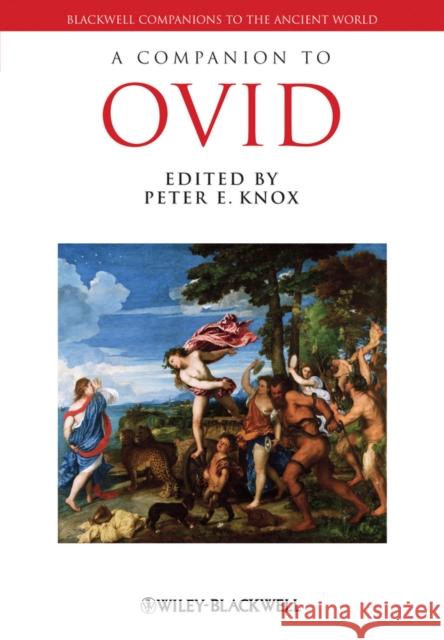A Companion to Ovid » książka
topmenu
A Companion to Ovid
ISBN-13: 9781405141833 / Angielski / Twarda / 2009 / 552 str.
A Companion to Ovid
ISBN-13: 9781405141833 / Angielski / Twarda / 2009 / 552 str.
cena 891,90
(netto: 849,43 VAT: 5%)
Najniższa cena z 30 dni: 875,66
(netto: 849,43 VAT: 5%)
Najniższa cena z 30 dni: 875,66
Termin realizacji zamówienia:
ok. 30 dni roboczych.
ok. 30 dni roboczych.
Darmowa dostawa!
A Companion to Ovid is a comprehensive overview of one of the most influential poets of classical antiquity.
- Features more than 30 newly commissioned chapters by noted scholars writing in their areas of specialization
- Illuminates various aspects of Ovid's work, such as production, genre, and style
- Presents interpretive essays on key poems and collections of poems
- Includes detailed discussions of Ovid's primary literary influences and his reception in English literature
- Provides a chronology of key literary and historical events during Ovid's lifetime











